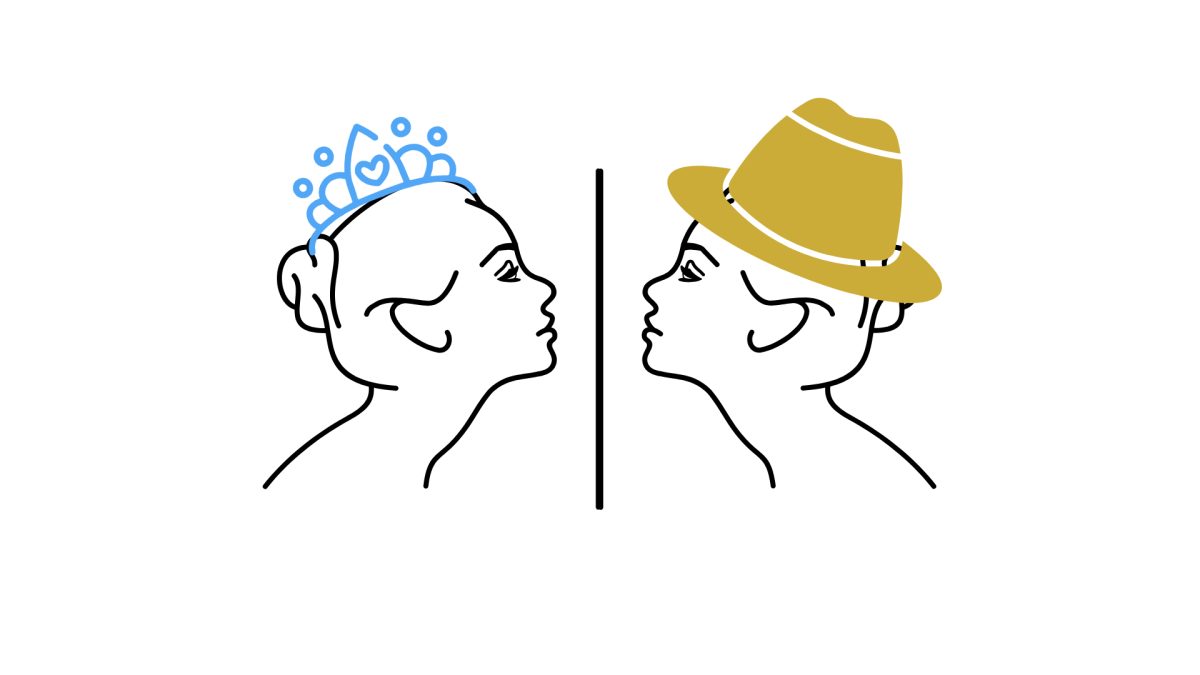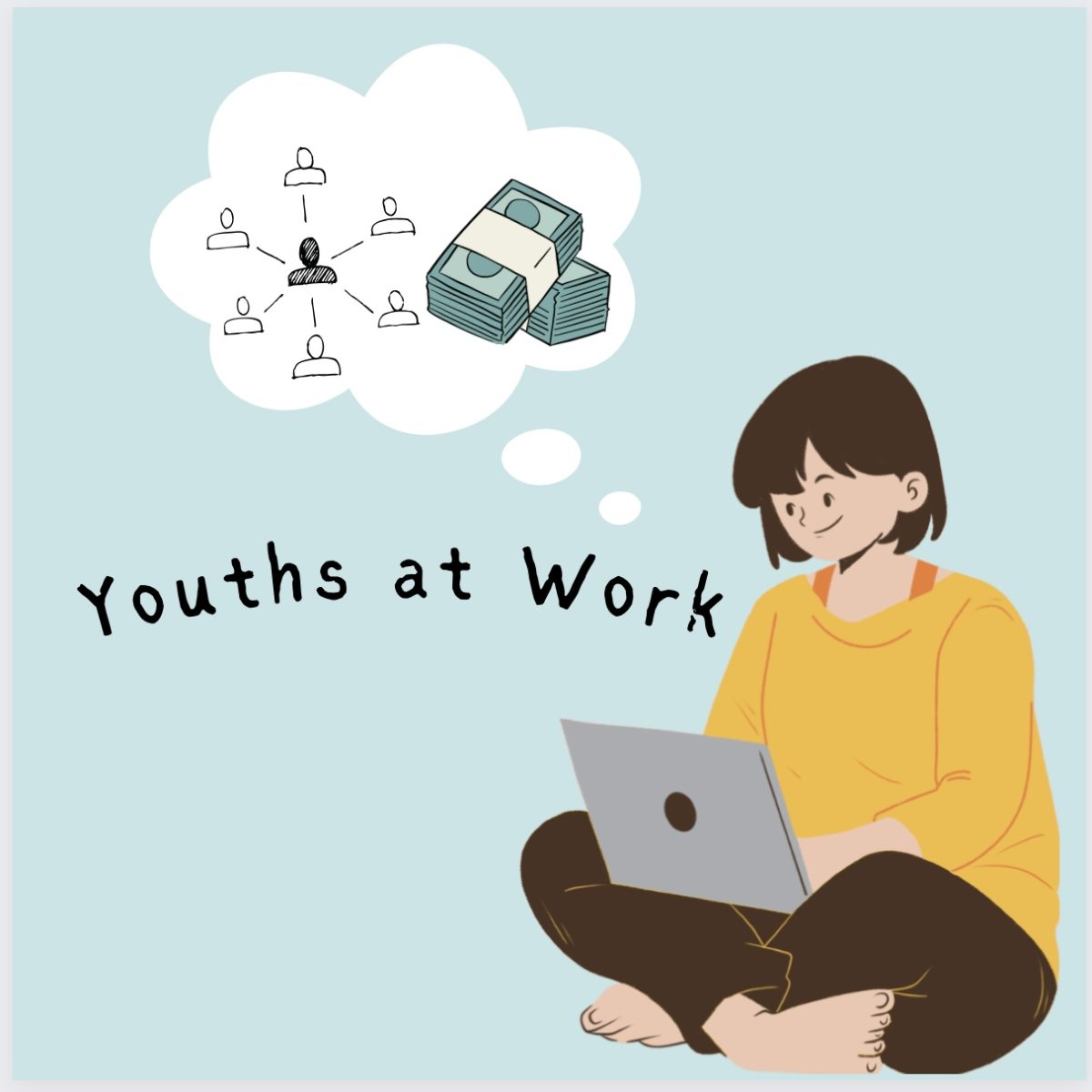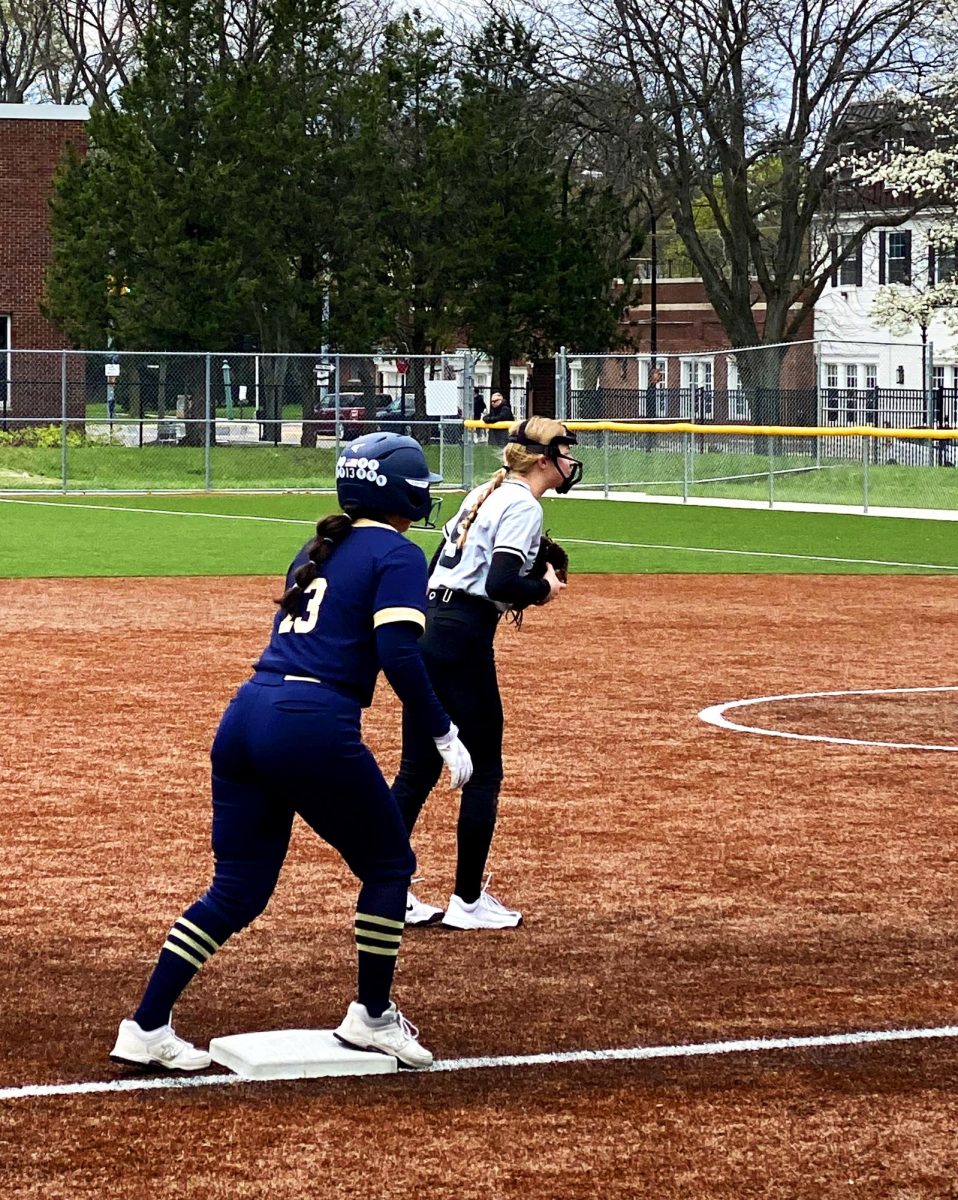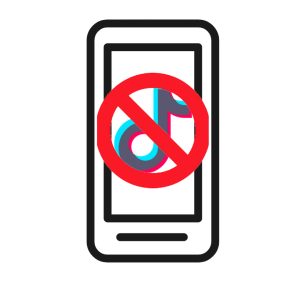By Julia Fox ’16 | Staff Writer
*Names have been changed in order to protect the anonymity of students due to the social and legal repercussions involved with the content of this article.
He’s a pretty average high schooler, not exactly the person most people would expect to be involved with drugs. While Robert Marlino* doesn’t play any sports and isn’t involved in any clubs, his marijuana use started as a hobby, a way to have a good time. When his friend offered him a joint,“ I just thought, you know, why not?” said Marlino, a former marijuana user.
He began smoking marijuana in the eighth grade, he said, and continued smoking multiple times a month until a suspension from school.
“When I first started, I didn’t really notice anything,” said Marlino. “But then when I continued, I just would spend so much money and always focus on the next time I would get high and where I’m going to do it. I wouldn’t focus on what life is really about, like getting good grades or hanging out with family or just having a good time. Before that I would have to be high to have a good time.”
According to a 2012 survey by The Partnership at Drugfree.org, marijuana use in adolescents is up 80 percent since 2008 with one in 10 teens admitting that they use marijuana at least 20 times a month.
“There were a little over 17 million people that smoked marijuana in 2010 and every three years or so it goes up about three million people,” said addiction medicine specialist Dr. Rudy Vervaeke.
It appears that the more education a person has, the less likely they are to abuse marijuana, he said. Furthermore, the more occupied someone’s time is, the less likely they are to abuse as well.
“Obviously someone who’s an athlete in high school, the chances of them using is a lot less than someone who is not involved in doing anything,” said Vervaeke. “Perhaps someone who is more isolative will tend to use more than someone who is busy socializing whether it be in clubs or whether they’re involved in some extracurricular activities.”
The draw to smoking most commonly stems from the sense of community it forms, he said.
“It’s something that’s shared,” said Vervaeke. “It causes a sense of community, so to speak, because people will pass a joint on from one to another. Try that with your french fries at McDonalds. It doesn’t quite work that way. You can’t share a french fry in the same sense that a joint can be shared.”
However, there are many other reasons that people try marijuana.
“I actually have a real reason why I started,” said Lucy Johns*, a frequent marijuana user. “I used to not be able to sleep. For school, which, I’m still obsessed with my grades, it used to be getting in the way. I would wake up really early but then I would stay up really late, too. And then, I would get high and I would get like really tired afterwards. I would feel really good and then I could sleep. It got to the point where it just makes everything better.”
Johns began regularly smoking marijuana in the ninth grade, she said. She used to smoke joints at least three times a day before limiting it to three or four times a week a few months ago.
“I just like to party,” said Johns. “I like to party, I like to listen to loud music, I’m a hippie child. This is just a part of it. I just wish it was the 70s, you know? That would be great.”
It’s an expensive hobby, Marlino said. He has spent over $500, he said. The more expensive a small quantity is, the ‘better’ quality it is. However, when buying, he said he has to be very careful not be ripped off.
“In the last two years, I’ve probably spent around $1000. And if I had more money, I’d probably just spend it on weed,” said Johns.
According to both Marlino and Johns, the ‘high’, or the effect it has on the brain, is what really draws them back.
“You feel different,” said Johns. “ It just made everything chill. It’s just a mindset change… everything is happier, it’s just brighter.”
It has a lot of other effects on Johns, too, she said. Music sounds better, light is more vivid and everything is funnier; and if the marijuana is considered ‘really good’, the high can last up to an hour and a half.
“It enhanced everything,” said Marlino. “You know, it’s like, colors become brighter, everything just doesn’t go as fast.”
Medically it seems to have the opposite effect, Vervaeke said.
“Basically, it causes a condition called dissonance,” said Vervaeke. “It decreases your ability to process information, it makes you less functional, it sort of slows your processors down. It takes longer to process information and make appropriate decisions. So that’s pretty much what it does to the brain-that’s the immediate intoxication effect.”
These kinds of effects can have long lasting consequences: some positive, some negative.
“I’m terrified because of what’s happened to some of my friends,” said Johns. “They’ve gone off the (expletive) deep end. One of my friends started Xanax and Adderall, then went to weed and tried to quit, and then went back.”
For her, marijuana has almost always had a positive impact, she said.
“I was not a very happy camper for a long time and I’m a pretty happy camper now,” said Johns. “It’s not really just the weed that made me like really happy all the time. Since I started, my attitude has changed and some of my bad influence friends are out of my life.”
While there is a possibility that a person who tries using marijuana may experience these kind of positive effects, the negative effects that it can have on the body can be detrimental, Vervaeke said.
“It suppresses the immune system so it makes you more likely to develop infections or have less resistance to common viruses,” said Vervaeke. “If you were to contract influenza, you may be one of the people that ends up in the hospital on a ventilator.”
Marijuana can actually damage the DNA in the lung tissue, he said. There’s 20 times more ammonia in marijuana smoke than tobacco smoke, multiple carcinogenic components, and poisonous gases such as hydrogen cyanide and nitric acid. Chronic exposure to any of these can cause emphysema, lung cancer and a condition called bullous lung, in which bubbles form on the tissue of the lungs and if popped, can collapse the lungs.
“The stuff now is genetically engineered,” said Vervaeke. “The cells in some of these plants are actually multi-nuclear. If you’re using mutant marijuana, it’s sort of like saying, ‘I’m going to go eat a fish out of the lake that has three eyes’. There’s a lot more danger to this, and we don’t know what the consequences of these powerful marijuana plants are now compared to what they were 30 years ago.”
In spite of this, neither Johns nor Marlino are worried about their future health. Johns is especially unconcerned because some cancer patients are prescribed medical marijuana cards, she said.
However, just because marijuana is used for medicinal purposes, that doesn’t mean that it’s safe, Vervaeke said.
Even so, Johns finds that the effects that it has had on her academic life are more worrisome than its potential future effects, she said. She has been suspended because of her involvement with marijuana.
“I still want to get into an Ivy League school, so I’m hoping to not get in trouble at school anymore because I have good grades,” said Johns. “When I got suspended, I was flipping out. When people see me they don’t usually think ‘drug dealer!’”
After Marlino was suspended, he stopped smoking, he said, partly due to his parents’ increased supervision.. Stopping wasn’t very hard for him though, because he didn’t smoke everyday, just a few times a month.
“I tried to quit for a month,” said Johns. “It was more like five days.”
Johns doesn’t think she’s addicted, though, she said. In fact, she doesn’t really believe that marijuana is addictive at all.
Vervaeke tends to disagree, he said.
While some people may say that marijuana is not addictive, researchers have developed an ‘antagonist’ or an antidote that reverses the effects of marijuana, Vervaeke said. When given this antagonist, a chronic abuser experiences acute withdrawal.
“So for all intents and purposes, it proves that it is an addictive substance,” said Vervaeke.
Johns thinks that if she really wanted to quit, she could, she said, but she likes it too much to stop right now. While she knows that she’ll still be smoking well into her 30s, she doesn’t want to look too far ahead.
“When I’m 50, I don’t know if I’m still going to be up for it. I don’t even want to think about it,” said Johns. “I don’t want to think about being old.”
While neither of their parents condone smoking, nor do either of them smoke in front of their parents, using marijuana does run in both of their families, said Johns and Marlino.
Marlino’s older brother smokes and in Johns’s extended family, almost everyone except for her parents smoke. However, her father smoked as frequently as she did when he was high school.
Johns’s parents have grounded her for smoking before, but they are mostly just concerned about her, she said. Her brothers try to help her stay out of trouble when they can by spraying air freshener or perfume if they can smell her.
“He is just nervous for me,” said Johns said of her father. “He thinks I’m going to get in trouble with the law but to be honest I’m not outward about it. Basically this is a way I can have a little more say in my life, which I don’t really have a lot of say in.”
Marlino and Johns agree that marijuana should be legal in all states.
“It doesn’t do anything,” said Johns. “Like what did weed ever do to you? Like why are you making it such a big deal? God put it on the Earth.”
Vervaeke believes that the growing societal acceptance and legalization of marijuana makes for a frightening future, he said.
“I think it’s going to dumb people down because it does cause cognitive impairment,” said Vervaeke. “It causes memory problems, learning problems, self-control problems, it can prevent educational attainment, it can prevent you from going on further. The impairment that’s associated with marijuana can be even longer lasting than alcohol. We’re going to have a society that may be more dangerous if it becomes legal.”
Johns thinks that not only should it be legalized, the perspective on it needs to change as well, she said.
“So basically, adults think that the kids that smoke are criminals, and they’re like doing really hard drugs and all this stuff, and they incorporated all these things,” said Johns. “But there are two different kinds of kids and you can tell who they are. Like there are kids who are doing criminal things and then there’s other kids like all my friends who are really good-moraled, rounded kids, not really into the law and stuff obviously, but at the same time, morally they’re not corrupted.”
According to Vervaeke, however, trying marijuana could lead to much more drug-related activity.
“Marijuana can lead to what we call disinhibition which reduces your resistance to using something else,” said Vervaeke. “So if you’re using marijuana and some other drug was available, it may cause you not to be able to resist the temptation to use something else. People call it a gateway drug for that reason.”
If someone is struggling from an addiction to marijuana or any other drug, the best thing they can do is seek help, said Vervaeke. Laws for substance abuse treatment confidentiality are much stricter than the traditional confidentiality laws, so full secrecy is ensured.
However, if someone is thinking about beginning the use of marijuana, he said, Vervaeke recommends that they research before they start.
“When a person is prescribed a medication by a doctor, they’re given a list of everything that could go wrong,” said Vervaeke. “And they have to make the decision, is the risk of medication greater than the benefit? And as far as smoking, you know, people, if they’re thinking about using marijuana, they should probably learn and see what it’s going to do to them. I know it sounds sort of silly in that respect but people are so concerned about the side effects of medications, they need to be just as concerned about the substances they abuse or use for recreational purposes.”


















































































